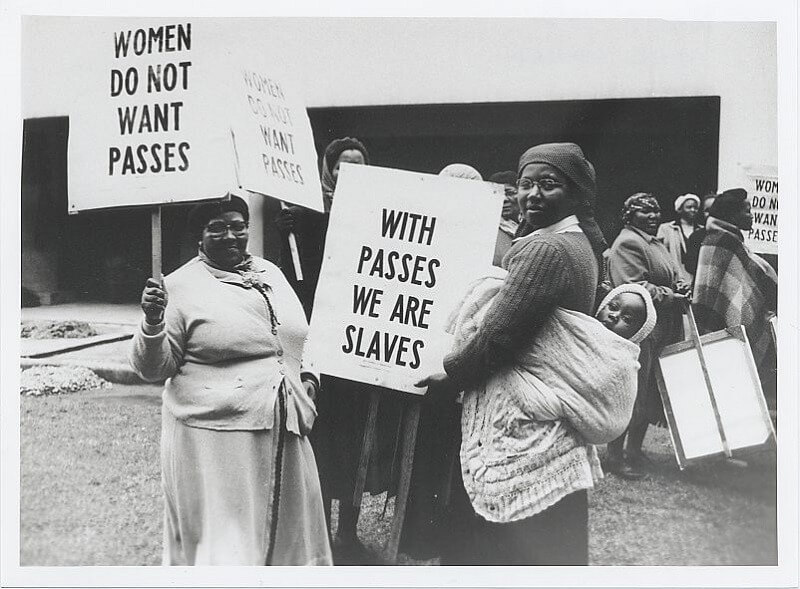In 1956, over 20 000 women marched peacefully to Union Buildings, demonstrating one of the country’s biggest march. The chant, Wathinta Abafazi, Wathinti Imbokodo, ( you strike a woman, you strike a rock) was heard from the protesters, which showed their strong will, strength and resilience.
Mothers, sisters and daughters marched to Union Buildings in Pretoria to petition against apartheid laws that stripped women of freedom and equality. They stood outside Union Buildings displaying unity.
In the year 2006, a reenactment of the March was staged for its 50th anniversary, which had veterans of the 1956 March participating.
One of the issues the women marched against was the inequality women faced and yet, 66 years later, inequality is still seen and experienced by women. Their demands are still not yet met with men being paid more than women.
South Africa sits at a high rate of gender based violence, with the scale tipping towards about 7 women killed daily. In a 5 year period between 2015 and 2020, a total of 13 815 women over the age of 18 years were murdered according to South African Police Service (SAPS).
9 August is not just a public holiday, it serves as a reminder of the brave women of 1965 who paved the way for future generations to stand up for themselves.
At the National Women’s Day event held in Richmond, KZN, the event had women in business showcasing their products and empowering each other.
President Cyril Ramaphosa made a speech at the event.
In his speech, the president noted that both genders can attend school, something that was not achievable in the past. More females than males matriculated and got distinctions proving females capabilities to achieve anything. He also said that in universities and colleges, more females were registered. He made reference to women being champions, highlighting the win by Banyana Banyana. The president urged women to be role models to young girls.
[perfectpullquote align=”full” bordertop=”false” cite=”” link=”” color=”” class=”” size=””]“With the right support, they too can be anything they want to be. From star soccer players to fighter jet pilots”, said Ramaphosa.[/perfectpullquote]
Cyril Ramaphosa mentioned that although opportunities are given to females, they still face obstacles which hinder them from succeeding.
The president said that in South Africa, women bare the brand of poverty especially a black woman.
Cyril Ramaphosa said, “ women are more likely to be unemployed than men” and given the figures, half of South African women are unemployed, including those that gave up looking for employment.
The president also called for change, touching on girls being taken out of school to take care of their siblings and families.
He said that the government put aside 40% public procurement for women-led businesses and about 50% in KwaZulu-Natal. Training programs will be provided to give female entrepreneurs the skills they need. He said between September and next year January, he aims that all 11 districts to benefit from the training programs that will be put in place.
He noted that some women have said that it is a burden to be a women in South Africa. Killings against women have been declared a second pandemic in the country.
President Cyril Ramaphosa said, “Gender based violence continues to be a stain on our celebration today”.
Three laws have been passed to strengthen the fight against gender based violence. The new laws give protection to victims. The laws empower and encourage police to enter premises without a warrant and grants permission for police to remove dangerous weapons from suspects. With the new laws, complainants can apply for protection order online.
The new scope expands for the national register of sexual offenders.
There are now stricter conditions put in place under which suspects will be granted bail.
Cyril said if you know someone or saw someone being raped, violated or assaulted, you can no longer remain silent. By law you are required to be report or face possible arrest.
He also promised 50/50 representation in his cabinet and every other establishment or company.














